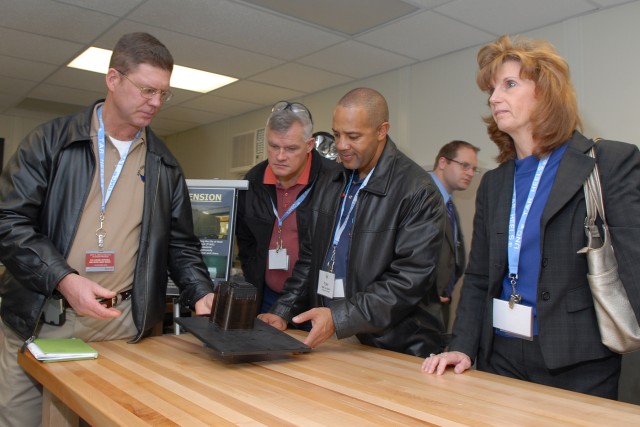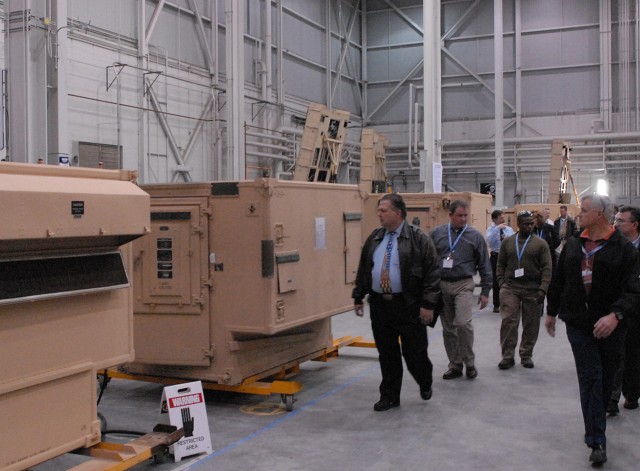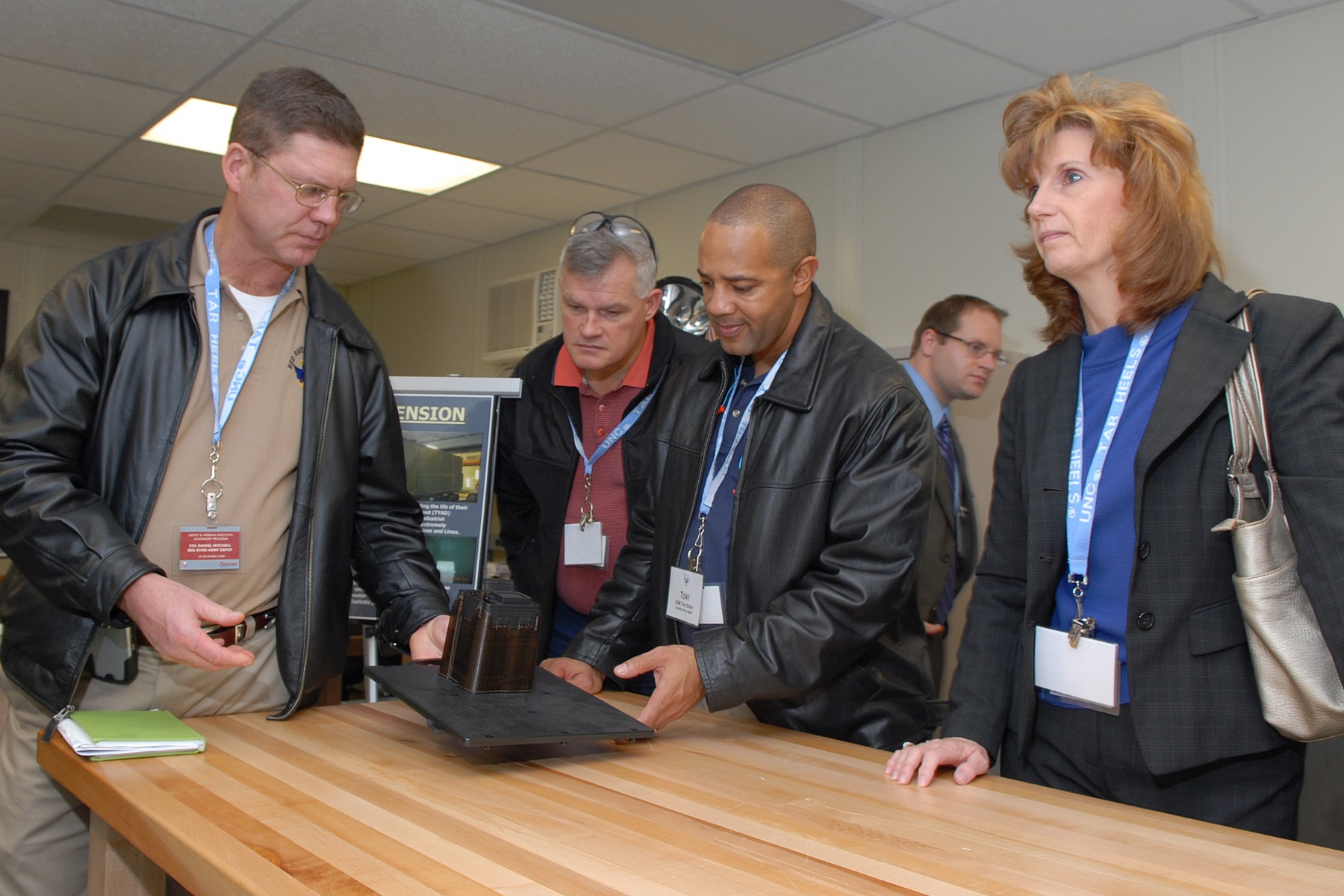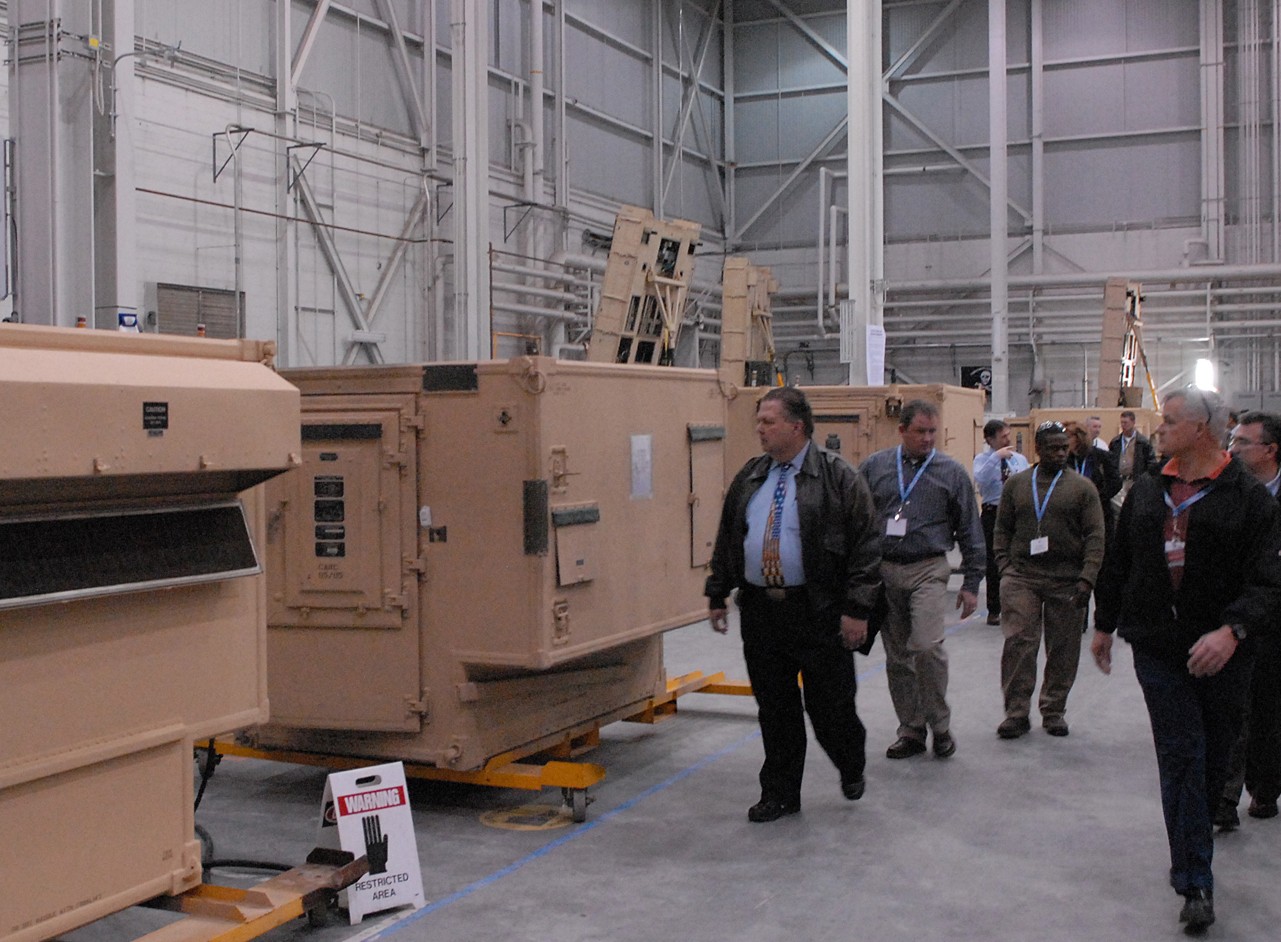TOBYHANNA ARMY DEPOT, Pa. - Tobyhanna senior leaders are discovering new ways to improve business processes with the help of a U.S. Army Materiel Command executive development program.
The Depot & Arsenal Executive Leadership Program is a six-month course that provides a learning environment to help commanders and senior leaders gain a broader knowledge of leadership and management techniques.
"The program provides a great overview of how the depots and arsenals operate and fit into the overall AMC business," said Rick Shuleski, director of Resource Management. "It also provides a great opportunity to network with other executives within the command as well as other service components."
DAELP participants from military and civilian facilities undertake a comprehensive curriculum designed to equip them to lead organizational change and business process improvement. The program's faculty members are selected from schools and universities, private sector organizations and the military services.
The curriculum is an integrated program of in-residence classroom sessions at the University of North Carolina, a duty station project and a corporate residency in the private sector. The program's components include five weeks of academic residency, one week dedicated to on-site depot/arsenal/industry visits, interspersed with a series of residencies at the participant's duty station and four weeks with a leading private sector corporation. Members of the 2008-2009 class participated in a site visit here Dec. 18.
Information and lessons learned shared by participants accentuate the learning experience, according to several Tobyhanna DAELP alumni.
"I believe the exposure to the many different leadership and management styles and practices was by far the most important aspect of this program," said Terrance Hora, director of Systems Integration and Support. "The classroom and practical experiences provided each leader with differing and sometimes competing philosophies and views of leadership."
Pat Esposito agrees. "You have 25 leaders in the classroom that are expressing their views and experiences on a lot of the same issues you are experiencing on a daily basis," he said, adding that the program "opens you up to new ideas and concepts" for continual process improvement. Esposito is the director of Production Management.
In addition to in-class sessions with faculty, other DAELP activities include simulations, case studies, project learning and corporate site visits. Participants are also introduced to Lean Six Sigma, aspects of manufacturing, operations and supply chain management. Near the end of the program, instructors focus on human resource management, work force performance, and the legal and financial aspects of managing large government, civilian-based organizations.
DAELP participants also learn first-hand the processes used by civilian companies during the corporate residency. Tobyhanna's directors and managers were partnered with leading private sector firms to study how corporate realities such as organizational strategy and change management, operations and service quality, financial metrics and market drivers play a role in the private sector. Participants can then compare private sector practices to their own duty station environment and apply lessons learned to their own organizations.
"While at Warner Robins, [Air Force Base, Ga.] I observed people using tracking systems for tracking tools in shared toolboxes and brought it back to the depot," said Suzanne Rudat, Command, Control and Computers/Avionics Directorate's deputy director. "We first implemented the system in Firefinder and it's been adopted in other areas since then."
After attending DAELP, Hora also shared information with depot organizations and was instrumental in developing a plan to reorganize the Business Management Directorate.
"I was able to expand my knowledge of business development and marketing while learning a great deal about how industry captures and develops business opportunities," Hora said of his partnering with the Lockheed Martin Corporation. "The ability to deliver what is promised creates strong customer satisfaction and new business opportunities. Delivering reliable products and services at cost and hitting milestones on schedule are essential to high customer satisfaction and the future of Tobyhanna," he said.
The corporate visits reinforce what is taught in the classroom, according to Shuleski. "These are world-class organizations where you can observe the processes and concepts in use in an industry environment," he said. "I learned that our operation is very similar to private industry and that these organizations deal with the same challenges we do." Shuleski partnered with BAE Systems during his residency and visited four of their work sites.
Maintaining a competitive edge in today's business world is vital to the success of any organization, according to Hora. The SIS director also believes that motivated employees will help an organization achieve its business goals and objectives.
"At DAELP, I learned the importance of leadership in crafting a vision of the organization and driving an understanding of that vision to all levels," Hora said. "Effective leaders in a large organization need to be strong problem solvers, self-motivated, creative and always keep the best interests of the enterprise in mind. They must also be able to motivate the whole team and work with cross-functional teams both internally and externally," he said.
DAELP offers senior leaders the opportunity to network with their peers, learn in a classroom environment and then work alongside heads of industry during a corporate internship.
"My internship with IBM gave me the opportunity to communicate with some of the top experts in the areas of fiscal responsibility, supply chain management, SAP, and human capital management," Esposito said, explaining that the experience helped him gain a different perspective on better business practices applied to the private sector. "We have to work very hard to stay competitive with these other organizations."
Tobyhanna Army Depot is the largest full-service Command, Control, Communications, Computers, Intelligence, Surveillance, and Reconnaissance (C4ISR) maintenance and logistics support facility in the Department of Defense. Employees repair, overhaul and fabricate electronics systems and components, from tactical field radios to the ground terminals for the defense satellite communications network.
Tobyhanna's missions support all branches of the Armed Forces. The depot is the Army Center of Industrial and Technical Excellence for Communications-Electronics, Avionics, and Missile Guidance and Control Systems and the Air Force Technology Repair Center for ground communications and electronics.
About 5,700 personnel are employed at Tobyhanna, which is located in the Pocono Mountains of northeastern Pennsylvania.
Tobyhanna Army Depot is part of the U.S. Army CECOM Life Cycle Management Command. Headquartered at Fort Monmouth, N.J., the command's mission is to research, develop, acquire, field and sustain communications, command, control, computer, intelligence, electronic warfare and sensors capabilities for the Armed Forces.




Social Sharing